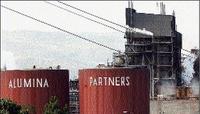
Phillips
This past week brought devastating news for the Jamaican economy. The early signal came on Monday from afar. On that single day some 52,000 job cuts were announced by United States (US) corporations. Those to be laid off are the people who visit Jamaica as tourists and who indirectly employ our hotel workers, taxi drivers, tour guides, etc., in our tourist centres. The prospect of continuing and deepening job losses in the US and Europe does not augur well for our tourist industry, or for the other sectors of our economy.
Last Tuesday in Parliament, the prime minister gave stark warning that on top of the already announced 50 per cent cut in alumina production at Alpart, there is the very real prospect of the closure of one or more of our existing alumina plants. This portends catastrophe for the economic life in the south central belt of the country, from St Elizabeth to Clarendon.
global economic crisis
Moreover, the collapse of bauxite-aluminium prices worldwide and the reduction in local production will curtail the country's hard currency earnings from the sector, which last year amounted to approximately US$1.3 billion. On the fiscal side the collapse of the industry would result in the loss of taxes in excess of US$100 million.
The overarching fact is that the world is in the grip of a worsening global economic crisis which is the most serious that has been experienced since the great depression of the 1930s. No country in the world, including Jamaica, will be immune from its effects. The US, the European Union and the Asian powers, notably China and Japan, combined spent in excess of seven trillion dollars in an effort to resuscitate their financial and production systems.
Jamaica will in all likelihood face a fallout in our tourist arrivals and earnings, since three-quarters of our tourists come from the US, which is particularly hard hit. Remittances declined 10 per cent in the December quarter and are likely to decline further as Jamaicans in the US, United Kingdom and Canada face bleak prospects along with the rest of the workforce in those countries. And, as we have already seen, the bauxite-alumina sector is facing the worst crisis in its history.
All of this is already affecting the Government's budget and the delivery of public services. Already, the value of the Jamaican dollar has been falling, one consequence of which is that the original inflation targets will be missed, and the final outturn for inflation being most likely in excess of 15 per cent. With government revenue targets way behind, the only recourse available to the country is cut-backs in expenditure, both recurrent and capital, or more taxes, or a combination of both.
major implications
All of this will have major implications for health, education and the other social services. Unemployment rates, especially among the young, are likely to rise and an already desperate crime situation is likely to get worse.
In the face of this, the most serious global crisis since Independence, we must collectively search for solutions, which will not only relieve some of the immediate hardship, but which will offer as well the prospect of continued national development.
Apparently, from all that we have seen of the responses to the crisis among the leadership of the developed countries, this is not a time for 'business as usual'. Governments in North America and Europe which, following the Reagan-Thatcher consensus of the 1980s, had resisted any government intervention in economies, are now rabidly interventionist and committing trillions of dollars secured by government holdings in financial and productive enterprises.
The multilateral institutions, including the International Monetary Fund and the World Bank, which have formed the pivot of the post-1945 world economic order, are already the focus of substantial reform proposals. Most significantly, as was evident in President Barack Obama's visit to Capitol Hill this week, conventional partisanship is giving way to bipartisanship.
It is difficult in the face of this scale of global response to understand the reticence of our national leadership to prepare the country for the realities which we must confront. What is required now is not simply speeches from the 'bully pulpit' of government, but rather a mobilisation of all the critical sectors of the economy and their engagement in a collective effort that can effectively cut across the traditionally 'tribalist' political divide. It is true that the social partnership discussions have restarted.
consultation
Yet, even here the conventional approach just will not do in the face of the current crisis. It is essential now for the Government to convene a national consultation including the private sector, trade unions, the church, farmers, the leadership of key voluntary organisations and the opposition. The objective should be to set out as soberly and as comprehensively as possible the full dimensions of the crisis that we face, and to fashion a response to the crisis which would draw on the talents of all those of skill and competence in the relevant sectors, whatever their political or other persuasion.
Of course, this will not be easy and the Government cannot do it alone. The Opposition will also have to do its part. Regretfully, the political traditions of the country developed since universal adult suffrage have not simply followed the usual adversarial pattern typical of the 'Westminster tradition', but have been downright 'tribalist'.
Instances of fruitful cooperation and compromise in the national interest have been rare. The most notable occasions of cooperation were probably the collaboration surrounding the preparation of the current Independence Constitution in the late 1950s and the agreements which gave rise to the Electoral Advisory Committee, which was to subsequently become the Electoral Commission. Sadly, the legacy of our politics has all too often been one of non-cooperation, mutual hostility, partisan violence, and the fomenting of public disorder in pursuit of power.
tribalist excesses
It could be argued that the intensity of these tribalist excesses has been lessened over the past two decades. Incidents of political violence are fewer and the penchant for electoral malpractice has probably been mitigated. Despite this, the essential kernel of distrust, hostility and non-cooperation which lie at the heart of 'political tribalism' in Jamaica remain intact. We can recall the unwillingness of the then Opposition to sign-on to the 'Partnership for Progress' agreement between government, opposition, and the private sector in 2003/4.
Similarly, memories would still be alive of the encouragement provided to disorderly elements during the 'gas price riots' of 1999. Indeed, successive oppositions drawn from both parties have 'latched on' to gas price hikes to deal a body-blow to incumbent administrations since the 1970s.
As they say that was then, this is now. The current world crisis threatens the very foundations of our economy and society. The solutions will involve not only the mobilisation of all the patriotic and committed in our midst, but it will also involve many difficult and painful decisions and inevitable hardship.
We cannot any longer afford to accommodate the desire to settle cores for past misdeeds on either side of the political divide. Thousands of workers have already been laid off and thousands more will face the axe before the current crisis subsides.
partisan advantage
To weather the storm will demand a whole new approach from our leaders. Collective endeavour and compromise in the national interest will have to supersede the search for partisan advantage. The message to followers will have to call for restraint rather than simplistically assigning blame to opponents. Most of all, we will need to settle our differences and work together as a country to develop workable plans for each of our main productive and social sectors. Anything else would be tantamount to 'whistling past the graveyard' in the face of impending catastrophe.

A section of the Alpart plant at Nain, St Elizabeth, which produces 1.6 million tonnes of alumina annually. - File
Peter Phillips is a Member of Parliament representing the Opposition People's National Party.